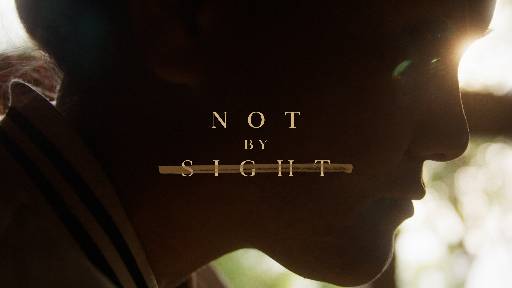-
We Are All Blind In Some Way Series
Contributed by The Rev Deniray Mueller on Feb 3, 2018 (message contributor)
Summary: where are we blind?
Mark 10:46-52
There was a blind man called Bartimaeus, who lived in Jericho. According to Jewish law at the time, blind people held a special position; he was cared for and there was nothing he was required to do. His fellow citizens had a religious duty to give alms, and that meant he would receive at least some money to live on. He couldn't work and so he wasn't expected to. His religious duties would have been very limited by his blindness. He could spend his days by the roadside -- always first with the latest news, always able to call out to passersby for alms, always able to feign further disability if someone tried to get him to do something he didn't want to do. Bartimaeus was certainly used to being blind, and he may have found some advantages in his condition. His blindness would not have been an easy thing to give up. I wonder if that darkness had not become so familiar to him, taken for granted, and even comforting. I wonder how much he had adopted the identity of "blind Bartimaeus," and how much his blindness had become a part of his self-understanding. He had gotten used to this way of life. Did he really want to give it up?
And yet, one day, he did give it up. Mark tells us that Jesus was already on the road to Jerusalem, with not only His disciples but a large crowd of people following Him. Bartimaeus was sitting by the road outside Jericho when he heard many people approaching in the distance. He must have grabbed at the hem of a passerby to find out who was coming. When he learned a famous healer and holy man was approaching, did he struggle within himself, wondering if he dared ask for help? Wondering if he wanted to ask for help? Was he afraid that he might receive sight if he asked for it? Was he afraid he might not?
He must have been agonizing over his dilemma when he heard Jesus Himself approaching. And yet he cried out at once,
"Jesus, Son of David, have mercy on me!" (Mark 10:47)
Even when the crowd and the disciples tried to silence him, he shouted even louder,
"Son of David, have mercy on me!" (Mark 10:48)
To his surprise, perhaps to his terror, some people came and told him Jesus had asked them to bring him to Him. Bartimaeus threw off his cloak before he leaped to his feet, and ran to Jesus.
When Jesus asked him what he wanted, Bartimaeus answered, "Rabbi, I want to see." (Mark 10:51)
He chose sight over blindness. And in the next instant, he could see. He was blind no more. Jesus had healed him.
Imagine being able to see after so many years of being blind. . . what a wonderful thing.
Because Bartimaeus had so much faith in Jesus, he was healed of his blindness. And in gratitude, he joined the crowds that were following Jesus.
We can marvel at the grace of God, healing a poor blind beggar. But the grace was not just in the healing, in the granting of sight to one who was blind. No, the grace was first in the longing for sight, of hoping that Jesus could heal him, of renouncing his comfortable life as a blind man.
And what about us?
How are we blind?
Blindness does not have to mean not being able to see through our eyes.
We could be blind in our HEART, not feeling compassion for our fellow people.
We could be blind in the HEAD, not thinking of anyone but ourselves, not caring about how what we do affects others.
We could be blind in our BEING, not wanting to make a scene, following along with the masses without thinking about our own hopes and dreams – not thinking about who might be hurt.
We could be blind in our SPIRIT, not seeking and knowing the love of God. Not learning from the teachings of Jesus. . . cold-hearted and unfeeling toward ourselves and our community.
Not knowing who Jesus is, what he really means to us, we are groping for faith and hope and peace, yet afraid of the changes it might make in our lives.
But each and every day we have the opportunity to lose our blindness. We have the opportunity to accept the grace of God that will allow us to see the world with open eyes; see the worth of each individual person and the beauty of this earth - seeing everything through Jesus’ eyes.
If we’re not seeing individuals and situations with different, loving eyes, we’re really not following Jesus, like Bartimaeus did. We need to open our eyes, see our brothers and sisters as family, and open our hearts to God’s love.

 Sermon Central
Sermon Central

